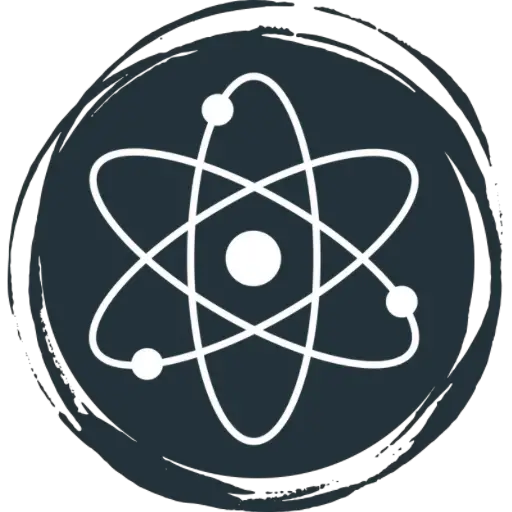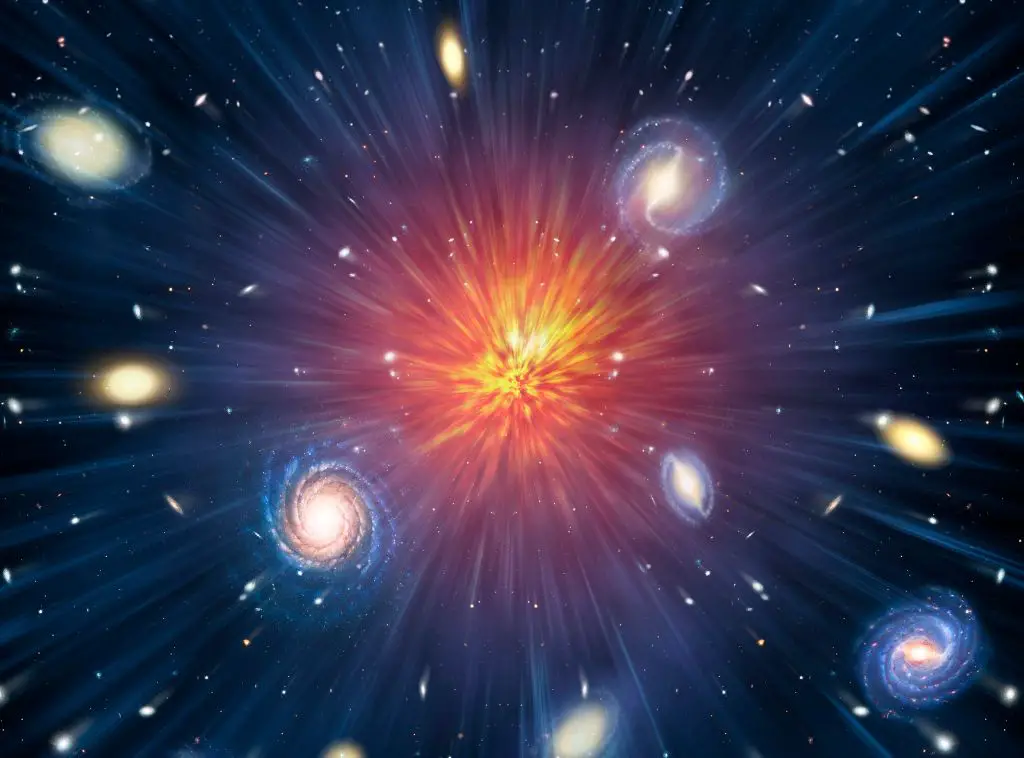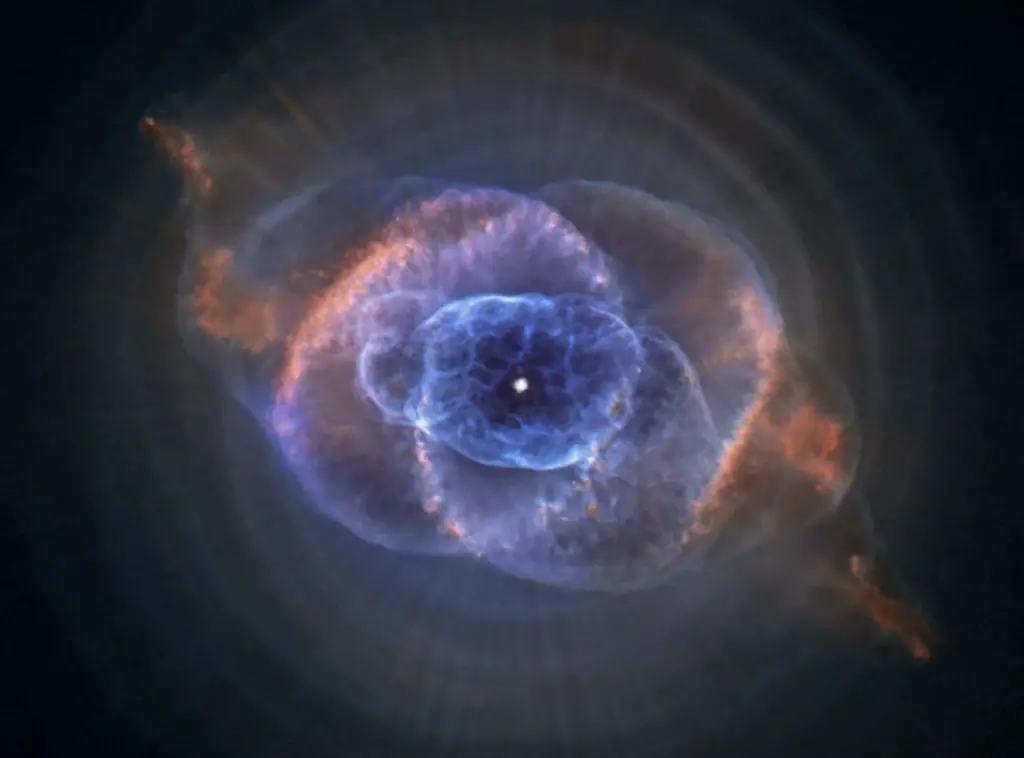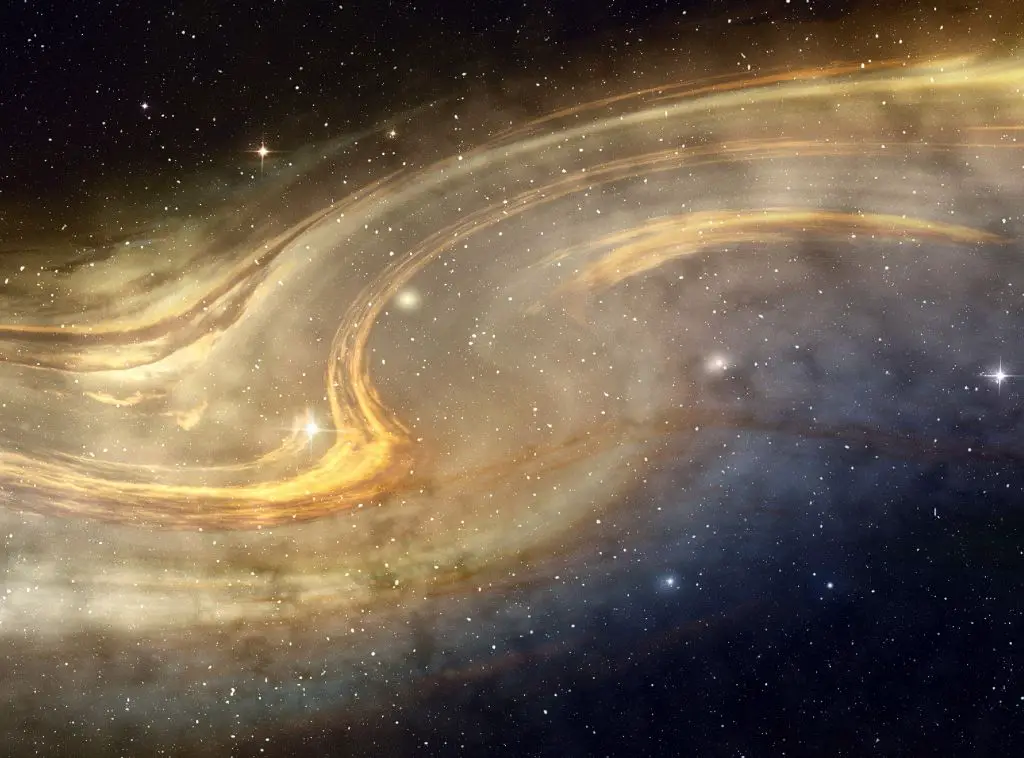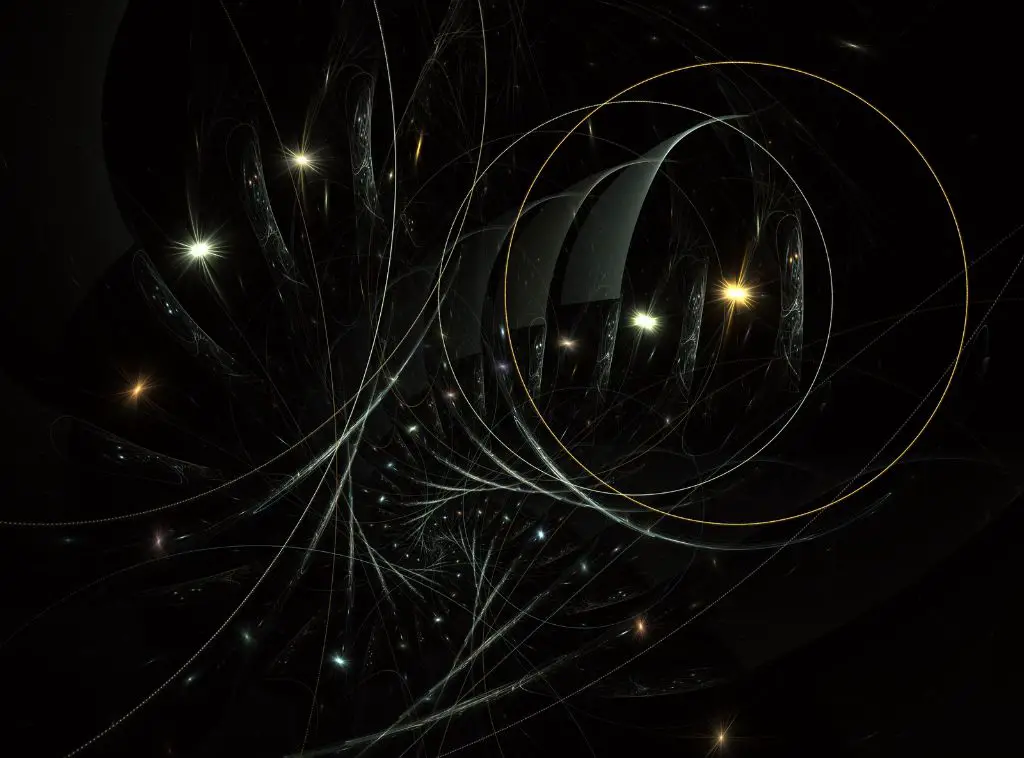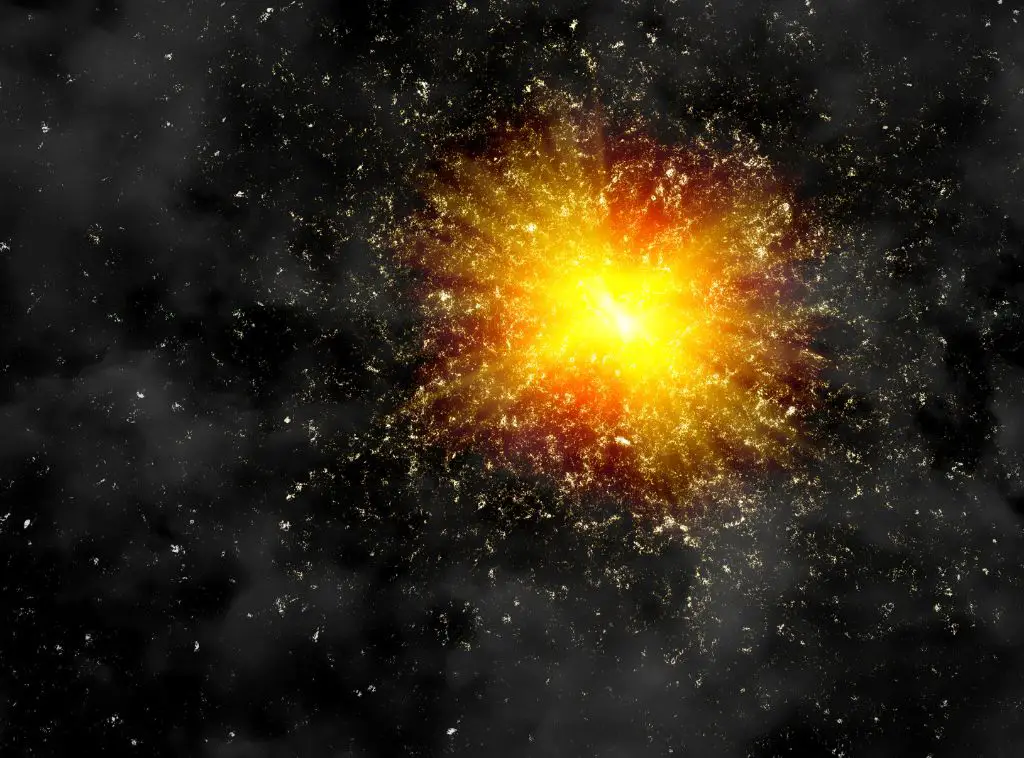The Big Bang Theory is the prevailing cosmological model that describes the birth of our universe approximately 13.8 billion years ago. This extraordinary event marked the beginning of space, time, and the cosmos as we know it today. As our understanding of the universe continues to grow, one of the most intriguing questions that scientists and cosmologists grapple with is whether the universe’s end could give rise to another cosmic event, such as another Big Bang. The possibility of another Big Bang following the conclusion of our current universe is not only a fascinating concept but also has significant implications for our understanding of the cosmos, the laws of physics, and the nature of reality itself.
In this article, we will delve into the intricacies of the Big Bang Theory, explore the various models that predict the fate of the universe, and examine the cyclic model, which posits that the universe undergoes repeating cycles of cosmic events, potentially including another Big Bang. Furthermore, we will assess the observational evidence and theoretical predictions that support or challenge the idea of another cosmic event and discuss the broader implications for cosmology and physics.
Will there be another Big Bang after the universe ends
The Big Bang Theory
The Big Bang Theory, the leading scientific explanation for the origin of the universe, posits that the universe began as an infinitely hot and dense singularity 13.8 billion years ago and has been expanding ever since. Supported by key evidence such as:
- the observed expansion of the universe
- Cosmic Microwave Background Radiation
- the abundance of light elements
- and the large-scale structure of the universe
The Big Bang Theory provides a comprehensive framework for understanding the cosmos. As we continue to explore the universe’s past and future, the Big Bang Theory serves as the foundation for examining the potential of another cosmic event beyond our current universe’s existence.
Suggested for Reading: The Big Bang didn’t happen
The Life Cycle of the Universe
Our current understanding of the universe’s life cycle can be divided into three general stages: expansion, plateau, and contraction. These stages represent the potential trajectories the universe may follow over time, depending on the interplay of various cosmological factors such as dark energy, dark matter, and the density of matter in the universe.
Expansion:
Since the Big Bang, the universe has been expanding, with galaxies moving away from each other as space itself stretches. This expansion is driven in part by dark energy, a mysterious force that counteracts the attractive force of gravity. The rate of expansion has been observed to be accelerating, which suggests that dark energy is currently the dominant force shaping the universe’s evolution.
Plateau:
As the universe continues to expand, it may eventually reach a point where the expansion slows down and stabilizes, resulting in a relatively stable, “flat” universe. This scenario is contingent upon the density of matter in the universe being precisely balanced with the critical density required for a stable cosmos. In this state, the universe would neither expand indefinitely nor contract back on itself, but would maintain a steady size for an extended period of time.
Contraction:
In a universe where the density of matter exceeds the critical density, gravity would eventually overcome the force of dark energy, causing the expansion of the universe to slow down and eventually reverse. This would lead to a contraction phase, with galaxies moving closer together as space contracts. The ultimate fate of a contracting universe could be a “Big Crunch,” in which all matter and energy in the universe collapses back into a singularity, potentially giving rise to another cosmic event, such as a new Big Bang.
The actual trajectory of the universe’s life cycle depends on various factors that are still not entirely understood, such as the precise nature and behavior of dark energy and dark matter. As our understanding of these mysterious forces advances, we will gain deeper insights into the potential fate of our universe and the possibility of another cosmic event in the future.
Theories on how the universe will end
The ultimate fate of the universe remains one of the most intriguing questions in modern cosmology. Several competing models attempt to predict the universe’s future based on our current understanding of its composition, the interplay of forces like dark energy and dark matter, and the observed expansion rate. The most prominent models include the Big Crunch, the Big Freeze, and the Big Rip.
Big Crunch:
The Big Crunch model posits that the universe will eventually stop expanding and begin to contract due to the gravitational attraction of matter. In this scenario, the density of matter in the universe would be high enough to overcome the repulsive force of dark energy, causing the expansion to reverse. Ultimately, the universe would collapse back into a singularity, similar to the one from which it originated. This event could potentially give rise to another cosmic event, such as a new Big Bang, leading to a cyclic model of the universe.
Big Freeze (or Heat Death):
The Big Freeze model, also known as the Heat Death of the universe, suggests that the universe will continue to expand indefinitely. In this scenario, dark energy would remain the dominant force, driving galaxies further apart until they become isolated from one another. Over time, stars would exhaust their nuclear fuel, and the universe would gradually cool down as it becomes filled with low-energy particles and radiation. Eventually, all thermodynamic processes would cease, resulting in a cold, dark, and lifeless universe.
Big Rip:
The Big Rip model envisions a more dramatic end to the universe, in which the repulsive force of dark energy becomes increasingly stronger, causing the expansion rate to accelerate to extreme levels. In this scenario, not only would galaxies be driven apart, but the force would also become powerful enough to overcome gravitational, electromagnetic, and nuclear forces, ultimately tearing apart all structures in the universe, including stars, planets, and even atoms.
Each of these models presents a different vision of the universe’s fate, and the actual outcome will depend on various factors, such as the precise nature of dark energy and the universe’s density parameters. As our understanding of these factors improves, we will gain greater insights into the future of the cosmos and the possibility of another cosmic event after the end of our current universe.
Cosmic Cycles: The Cyclic Model and Its Implications
The cyclic model of the universe presents an alternative perspective on the cosmos, suggesting that our universe is just one phase in an ongoing series of cosmic events. According to this model, the universe undergoes repeating cycles of expansion, contraction, and rebirth, each initiated by a Big Bang event followed by a possible Big Crunch or another cosmic event that triggers the next cycle.
The cyclic model is primarily based on the idea that the universe’s contraction and subsequent rebirth could be driven by processes involving dark energy, dark matter, or other yet-to-be-understood phenomena. This model challenges the more conventional, linear view of the universe’s life cycle, proposing that our current universe is merely a temporary stage in an infinite sequence of cosmic epochs.
There are several implications and consequences of the cyclic model:
The Nature of Time:
If the universe undergoes repeated cycles, the concept of time may need to be reevaluated. The cyclic model could imply that time is cyclical, rather than linear, with cosmic events repeating in a potentially infinite loop.
The Laws of Physics:
The cyclic model raises questions about the fundamental laws of physics, including whether these laws remain constant across different cosmic cycles or if they change with each rebirth of the universe. This could have profound implications for our understanding of the cosmos and the foundational principles of science.
The Origin of the Universe:
A cyclic universe challenges the notion of a singular beginning, suggesting that there may not have been a single Big Bang that marked the birth of the cosmos. Instead, the universe may have experienced multiple beginnings, each marked by a cosmic event that initiated a new cycle.
The Possibility of Another Big Bang:
The cyclic model implies that another Big Bang could occur after the end of our current universe, leading to a new phase in the cosmic cycle. This new universe might have different properties, laws, and structures, presenting intriguing possibilities for the future of the cosmos.
The cyclic model is still considered speculative and requires further evidence and research to gain widespread acceptance among scientists. As our understanding of dark energy, dark matter, and other fundamental aspects of the universe advances, we may uncover more clues about the potential for repeating cosmic cycles and the possibility of another Big Bang.
Observational Evidence and Theoretical Predictions for Another Big Bang
Supporting Evidence:
- Cosmic Microwave Background Radiation (CMBR): Some proponents of the cyclic model argue that certain features of the CMBR, such as the uniformity of temperature and the presence of specific patterns, could hint at a cyclic universe. They propose that these features might be remnants of previous cosmic cycles, although this interpretation is still debated among scientists.
- Dark Energy and Dark Matter: Our limited understanding of dark energy and dark matter leaves room for speculation about their potential roles in a cyclic universe. Some theories propose that these mysterious forces could interact in ways that lead to the universe’s contraction and subsequent rebirth.
- String Theory and Brane Cosmology: Theoretical frameworks such as string theory and brane cosmology offer alternative explanations for the origin and evolution of the universe. These theories predict higher-dimensional structures, known as branes, that could collide and trigger cosmic events like the Big Bang, leading to a cyclic universe.
Challenges and Limitations:
- Insufficient Observational Data: Currently, there is no direct observational evidence to support the idea of a cyclic universe or another Big Bang. Much of the evidence cited by proponents is open to interpretation and could be explained by alternative models of the universe’s evolution.
- The Second Law of Thermodynamics: The cyclic model faces challenges from the second law of thermodynamics, which states that the entropy of an isolated system always increases over time. In a cyclic universe, entropy would accumulate across cycles, eventually leading to a state of maximum disorder, which contradicts the idea of repeated cosmic cycles.
- The Role of Dark Energy: Our current understanding of dark energy suggests that it drives the accelerated expansion of the universe, making a contraction and subsequent cosmic event less likely. However, given the uncertainties surrounding dark energy, it is still possible that its properties could change over time, leading to new cosmic events.
The idea of another Big Bang or cosmic event following the end of our current universe is an intriguing concept that requires further research and exploration. While there is no definitive evidence to support the cyclic model, it remains an area of active investigation in cosmology. As our understanding of the universe advances, new discoveries could shed light on the potential for repeating cosmic cycles and the possibility of another Big Bang.
The Multiverse Hypothesis
The multiverse hypothesis posits that our universe is just one of many parallel universes, each with its own unique properties and physical laws. This concept has significant implications for our understanding of cosmic cycles and the potential for another Big Bang, as it suggests that new cosmic events could occur independently in separate universes, with varying physical laws leading to diverse cosmic phenomena. However, the multiverse hypothesis also highlights the limitations of our observations, as we may only ever be able to study our own universe, leaving the true nature of the multiverse and its potential cosmic cycles beyond our reach.
Implications of another Big Bang for Cosmology and Physics
The prospect of another Big Bang or similar cosmic event has far-reaching implications for our understanding of cosmology, physics, and the fundamental nature of the universe. If such an event were to occur, it would challenge established theories and prompt a reevaluation of key principles in these fields.
The Nature of Time and Space:
The possibility of another Big Bang raises questions about the nature of time and space. Are they finite or infinite? Do they have a beginning and an end, or do they persist through multiple cycles of cosmic events? The answers to these questions could have profound implications for our understanding of the universe and its origins.
The Laws of Physics:
If another Big Bang were to occur, it could lead to a universe with different physical laws, constants, or even entirely new phenomena. This would challenge our current understanding of fundamental forces, particles, and the fabric of reality itself, prompting scientists to reevaluate and revise established theories.
The Role of Dark Energy and Dark Matter:
A potential new cosmic event could shed light on the mysterious dark energy and dark matter that make up a significant portion of our universe. Understanding the interplay between these enigmatic forces and the processes that drive cosmic events could help us uncover the true nature of these phenomena and their role in shaping the universe.
The Anthropic Principle and Fine-tuning:
The possibility of another Big Bang, with potentially different physical laws and constants, could impact our understanding of the anthropic principle and the fine-tuning of the universe. This principle suggests that the universe’s fundamental properties are finely tuned to allow for the existence of life, and the emergence of a new universe could either support or challenge this concept.
The Search for a Unified Theory:
The prospect of another cosmic event underscores the need for a unified theory that can explain both the macroscopic realm of cosmology and the microscopic realm of particle physics. Such a theory could help scientists better understand the origins, evolution, and fate of the universe, and potentially provide insights into the mechanisms that could trigger another Big Bang.
The potential for another Big Bang or cosmic event has broad implications for cosmology and physics, challenging established theories and driving the quest for new knowledge about the fundamental nature of the universe. As we continue to explore the cosmos and unravel its mysteries, we may uncover new insights that reshape our understanding of the universe and its ultimate fate.
So will there be another Big Bang after the universe ends?
The possibility of another Big Bang or cosmic event in the future has captivated scientists and researchers, prompting a reevaluation of our understanding of the universe and its fundamental nature. Various models of the universe’s fate have been proposed, including the Big Crunch, the Big Freeze, and the Big Rip, each presenting different scenarios for the universe’s end and the potential for a new cosmic event.
The cyclic model, multiverse hypothesis, and advances in theoretical frameworks like string theory and brane cosmology have introduced alternative perspectives on the nature of the cosmos, suggesting that our current universe may be just one phase in an ongoing series of cosmic cycles or parallel universes. However, direct observational evidence for these ideas remains elusive, highlighting the need for continued research and exploration in cosmology.
The prospect of another Big Bang has far-reaching implications for our understanding of time, space, the laws of physics, and the enigmatic forces of dark energy and dark matter. As we continue to study the universe and push the boundaries of our knowledge, we may uncover new insights that reshape our understanding of the cosmos, its origins, evolution, and ultimate fate. The potential for another Big Bang underscores the importance of continued research and exploration in the field of cosmology, as we strive to unravel the mysteries of the universe and our place within it.
